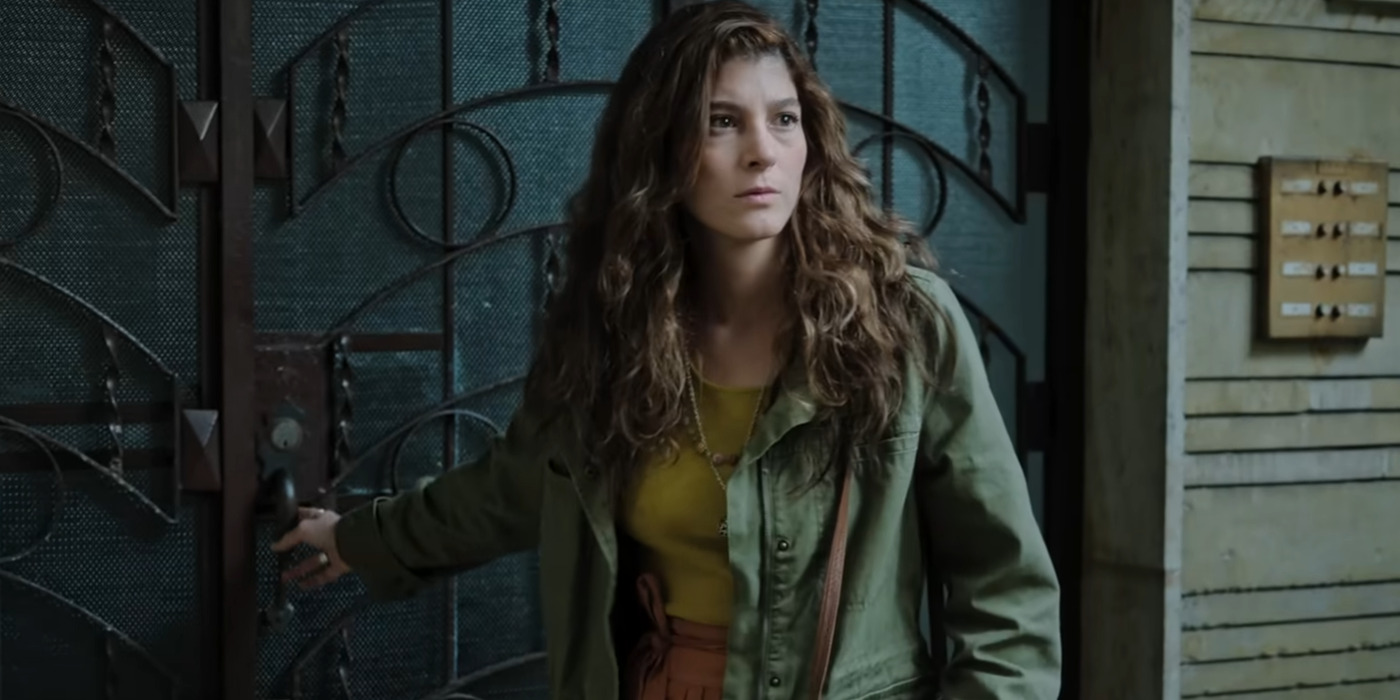Netflix’s Spanish drama ‘Delirium’ presents an invigorating story about a woman and her spiral of madness that unearths secrets of a past shrouded in secrecy. Originally titled ‘Delirio,’ the show revolves around Agustina, a young woman estranged from her family who finds a new beginning with her older husband, Professor Aguilar. However, after one mysterious trip to a hotel, the woman becomes overcome with a wild delirium that detaches her from her reality. Consequently, in an effort to cure her of whatever plagues her mind, Aguilar delves into his wife’s elusive past. In doing so, he ends up unearthing shocking discoveries about Agustina, her dysfunctional family, and their myriad od buried secrets.
The story retains a dual narrative, following Agustina’s present and her past in tandem. Consequently, different stages of her life underline different aspects that contribute to her current predicament. As a result, the story remains ripe with relevant socio-political themes of cultural gender-based oppression, drug trafficking, and mental health. Despite the story’s 1980s setting, these thematic elements manage to convey a realism for the modern, contemporary audience.
Delirium Adapts Laura Restrepo’s Beloved Colombian Novel
‘Delirium,’ originally ‘Delirio,’ is a live-action adaptation of the eponymous 2004 novel by Laura Restrepo. The literary predecessor follows a similar story about Agustina, a woman undergoing a mental ailment that pushes her husband, Aguilar, to investigate matters of her past. In that way, the foundation of the book and its on-screen adaptation remain similarly kindred. Through the protagonist’s past, particularly her secretive family and their well-hidden cruelties, the storyline explores the nature of secrecy and how it aids and abets the more menacing facets of society. From the rise of drug trafficking to the misogyny surrounding women’s sexual liberation and mental health, all these topics become cornerstones of the central plot.

Even so, while the literary and the on-screen depiction of Agustina’s story share these correlations, they also diverge in other places. The production of the show took place under the direction of Julio Jorquera Arriagada and Rafael Martínez Moreno, with Andrés Burgos and Verónica Triana as the screenwriters. Notably, Restrepo was absent from the creation process. This was an active choice, supported by the author, who recognized the stark distinctions between the medium of novels and TV shows. For the same reason, she was happy to let her book speak for itself, allowing its on-screen adaptation to offer a linked yet crucially distinguished version of the tale. Thus, the mini-series sustains some distance from its source material in terms of narrative storytelling, thematic resonance, and character development. Even so, Restrepo remains ultimately pleased with the end result, adding credibility to ‘Delirium’ as a book-to-screen adaptation.
Delirium Delves Into Relevant Socio-Political Themes
One of the defining factors of Restrepo’s novel ‘Delirio’ stems from its ability to tap into complex themes through a relatively intimate, drama-centered story. Agustina’s experiences remain deeply entrenched with the realities of misogyny-driven violence and oppression, particularly within a family structure. Her narrative and the source of her conflict remain tethered to the complexities of sex and female sexuality, especially in an oppressive period of time. Naturally, the story’s relationship to the motifs of madness and its dedicated exploration follows as an extension of the same. Therefore, it forays into the more complicated and nuanced depiction of domestic violence and its secretive, hidden reality. In that way, Agustina remains a deeply relatable character whose daunting journey offers a realistic reflection of patriarchy’s sinister hold on culture.

Alternatively, characters like Agustina’s father, her brother, Joaco, and her teenage love, Freddy, offer a peek into a drastically different but equally relevant aspect of society. Through this secondary plot, the story dives into the global problem of drug trafficking, especially in the 1980s. In the 80s, drug trafficking saw an incredible rise in Colombia, where several cartels and distribution systems came into prominence. Much like the reality of sexist domestic violence, this crime, too, thrived thanks to a veil of secrecy and denial. Although the show strives for a commendable depiction of the latter, it finds excellence in its portrayal of drug trafficking. Despite not centering around any notable and recognizable cartels, the show does a great job of representing the damaging effects such practices had on the Bogota community of the 80s. Ultimately, ‘Delirium’ retains the same confinement in fictionality as its source material. Yet, it manages to achieve a similar level of realism and authenticity through its socio-political themes.
Read More: Is Untamed Based on a True Story?


